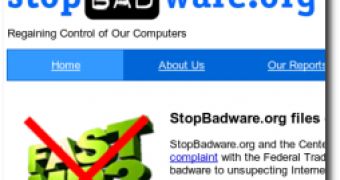The security provided by the Google search engine is very important for most of the Internet users because millions of visitors are using the search technology every day. Today, the search giant introduces new security notification available to all webmasters and received via e-mail.
"Now instead of simply informing webmasters that their sites have been flagged and suggesting next steps, we're also showing example URLs that we've determined to be dangerous. This can be helpful when the malicious content is hard to find. For example, a common occurrence with compromised sites is the insertion of a 1-pixel iframe causing the automatic download of badware from another site. By providing example URLs, webmasters are one step closer to diagnosing the problem and ultimately re-securing their sites," Phil Harton, Google employee, sustained in a blog post.
As you know, the Google search engine already provides several malware notifications returned to every user that searches for a malicious keyword. "Warning - visiting this web site may harm your computer!" the alert says when you try to click on a dangerous weblink. At this time, Google provides one more security notification displayed under the link returned by the search query, saying "this site may harm your computer."
This notification is quite different because it is especially designed for webmasters, helping them to identify malicious pages using a simple message received by email. In the past, Google made a partnership with StopBadware.org to flag all the malicious websites as malware, all security alerts being based on the information provided by the antibadware firm. "In addition to notifying webmaster tools users, we've also begun sending email notifications to some of the webmasters of sites that we flag for badware. We don't have a perfect process for determining a webmaster's email address, so for now we're sending the notifications to likely webmaster aliases for the domain in question (e.g., webmaster@, admin@, etc)," the Google employee added.

 14 DAY TRIAL //
14 DAY TRIAL //